
Opening Thoughts
Recently, I've noticed more and more friends around me starting to focus on healthy lifestyles. Some friends have begun running daily, some are studying nutrition, and some have even enrolled in personal trainer courses. This transformation makes me feel gratified because health is indeed life's most important asset. In our fast-paced society, we often ignore our physical condition until problems arise. Today, I'd like to share with you my experiences in pursuing a healthy lifestyle over these years, hoping to provide some inspiration.
Health Starts with Measurement
When it comes to healthy living, many people's first reaction is "I need to start exercising" or "I need to eat less." However, do you know that real health management actually begins with "quantification"? Only by establishing a scientific quantification system can we truly understand our physical condition and make targeted improvements.
Weight monitoring is one of the most basic and important quantitative indicators. Everyone should develop the habit of regular weighing, preferably every morning after using the bathroom and before eating. This time point best reflects your true weight condition. When weighing, it's recommended to wear light clothing and measure under the same conditions to ensure data comparability.
Besides weight, we need to pay attention to other physical indicators, such as waist circumference, hip circumference, and body fat percentage. These data can more comprehensively reflect our physical condition. There are many smart body fat scales on the market now that can measure multiple indicators at once, which is very convenient. However, note that different brands of body fat scales may have measurement errors, so it's recommended to use one fixed device for long-term monitoring.
Blood pressure monitoring is also very important. Many people think only middle-aged and elderly people need to measure blood pressure, but that's not true. Young people also need regular blood pressure checks to detect problems early. It's recommended to purchase a home blood pressure monitor and measure at least once a week. It's best to measure in the morning after waking up or before resting at night, avoiding measurement immediately after intense exercise.
Additionally, sleep quality monitoring shouldn't be ignored. Many smart bands now come with sleep monitoring functions that can record our sleep duration, proportions of deep and light sleep, and other data. Through these data, we can understand our sleep quality and adjust our rest habits accordingly.
The Art of Nutritious Eating
Nutrition is a very profound subject, but for ordinary people, mastering some basic principles is enough. First is balanced diet, which means we need to consume various types of food to ensure comprehensive nutrition.
Specifically, daily diet should include the following parts: First is carbohydrates, which are the body's main energy source. However, it's best to choose whole grains, such as brown rice, oats, whole wheat bread, etc., as these foods contain more dietary fiber and vitamins.
Protein is essential for building and repairing body tissues. Quality protein can be obtained from lean meat, fish, eggs, and soy products. Daily protein intake should account for 15-20% of total calories. It's particularly worth noting that soy products not only contain rich protein but also beneficial substances like isoflavones, so it's recommended to consume some every day.
Fruits and vegetables are the main sources of vitamins and minerals. You should eat at least 400 grams of fruits and vegetables daily, equivalent to 5 servings, with vegetables accounting for 3 servings and fruits for 2 servings. When choosing fruits and vegetables, it's best to select seasonal ones, which are not only fresh but also relatively inexpensive. Additionally, vegetables of different colors contain different nutrients, so try to achieve a "rainbow" variety.
Although nuts are high in calories, they contain rich unsaturated fatty acids and trace elements. Eating a small handful (about 30 grams) daily is a good habit. It's recommended to choose plain nuts and avoid processed or salted products.
Regarding diet, another important principle is regular timing and portions. We should develop regular meal habits, avoiding binge eating or excessive dieting. It's best to maintain three meals a day, with breakfast being the most important - never skip it. If work is too busy, make sure to carry some healthy snacks like fruits or whole wheat crackers to avoid choosing junk food when hungry.

Exercise Isn't a Chore
Exercise is an indispensable part of healthy living, but many people have a natural resistance to it. Actually, exercise doesn't have to be intense, nor does it require going to the gym - the key is finding a suitable method for yourself.
Walking is the simplest and easiest exercise to maintain. Maintaining 30 minutes of walking daily can meet basic exercise requirements. You can incorporate walking into daily life, such as walking to and from work or taking a walk after meals. Many people now have pedometers or fitness bands that can help us monitor daily activity levels.
If you want to increase exercise intensity, you can consider fast walking or jogging. These two forms of exercise don't require special venues or equipment and can be done anytime, anywhere. Start with 10 minutes and gradually increase the time. Remember, consistency is key in exercise; don't pursue high intensity from the beginning.
Yoga is a very suitable exercise to do at home. It not only strengthens physical fitness but also helps relax body and mind. There are many free yoga tutorial videos online now, and beginners can practice following these videos. It's best to start with some basic moves and gradually increase difficulty after ensuring proper form.
Strength training is also a very important part. As we age, our muscles gradually decrease, so appropriate strength training can help us maintain muscle mass. Simple strength training can be done at home, such as push-ups, squats, planks, etc. These movements don't require special equipment but are very effective.
Pay attention to the following points when exercising: First is proper warm-up, which can include some simple stretching exercises to prevent sports injuries. Second is gradual progression, don't pursue high intensity from the start. Finally, pay attention to post-exercise recovery, including adequate rest and proper hydration.
Habit Formation
A healthy lifestyle needs to be developed through daily accumulation of habits. Many people want to change all bad habits at once, but this often backfires. The correct way is to start with small things, step by step.
First is sleep habits. Maintaining regular sleep patterns is very important for health. It's recommended to wake up and go to bed at fixed times every day, trying to maintain this even on weekends. It's best not to use electronic devices for an hour before bed; you can read a book or do some light stretching exercises to help the body relax.
Second is drinking water habits. Many people haven't developed the habit of drinking water, often only remembering to drink when thirsty. Actually, we should develop the habit of actively drinking water, at least 1500-2000ml per day. You can prepare a large water bottle to remind yourself to drink water regularly.
Good personal hygiene habits are also important. Frequent hand washing, regular towel changes, keeping the environment clean - these seemingly simple things are very helpful in preventing diseases. This is especially important during flu season.
Forming habits takes time and patience. Psychological research shows it takes about 21 days to form a new habit. During this process, we may encounter various difficulties and temptations, but success will come if we persist.

Strengthening Protective Awareness
Health protection is a very important but often overlooked topic. Many diseases can actually be prevented through good protective awareness.
First is personal hygiene protection. Besides basic hand washing and wearing masks, attention must be paid to food hygiene. When dining out, choose restaurants with good hygiene conditions, separate raw and cooked foods, and heat food thoroughly.
Second is sexual health protection. This might be an embarrassing topic but is very important. Safe sexual behavior can prevent many diseases and must be taken seriously. Regular health check-ups are recommended, and seek medical attention promptly if problems are found.
Sun protection is also an important protective measure. Many people think sunscreen is only needed in summer, but this is a misconception. UV damage to skin is cumulative, so sun protection is needed year-round. Apply sunscreen when going out, and use physical protection like hats and sunglasses.
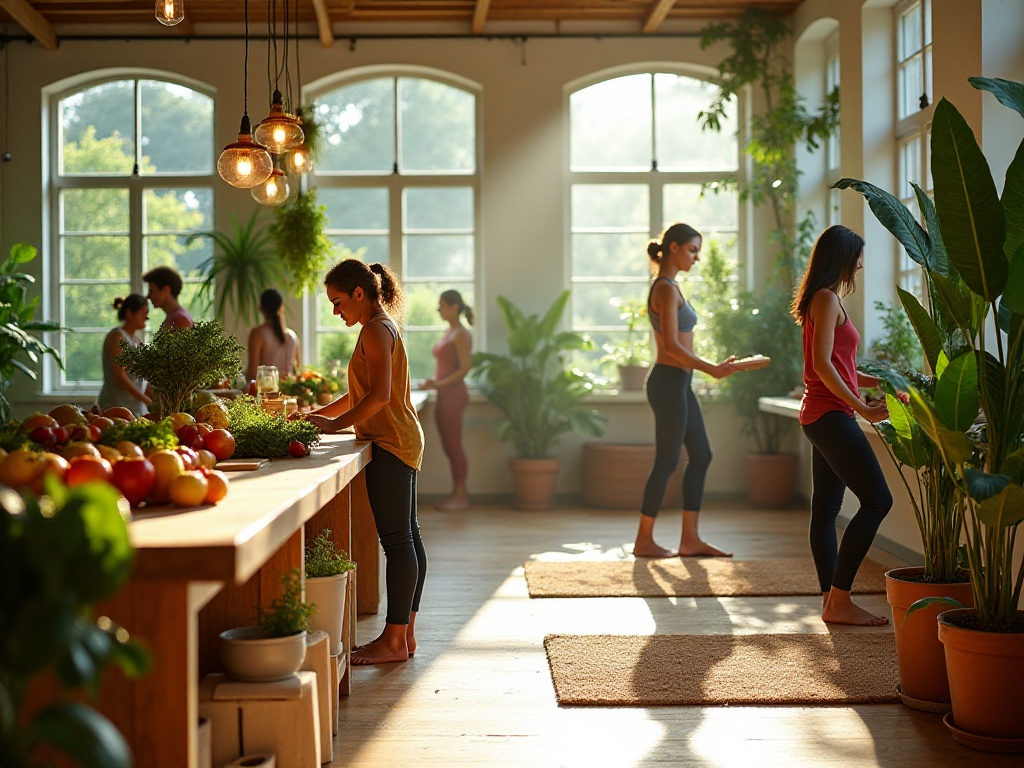
New Thinking on Waste Sorting
Waste sorting is not just an environmental issue but also a health issue. Good waste sorting habits can reduce environmental pollution and indirectly protect our health.
First, understand the classification standards for different types of waste. Generally, waste can be divided into recyclables, kitchen waste, hazardous waste, and other waste. Recyclables include paper, plastic, metal, etc.; kitchen waste mainly includes leftover food and fruit peels; hazardous waste includes batteries, medicines, etc.; other waste refers to waste not belonging to the above three categories.
At home, prepare several different garbage bins for collecting different types of waste. You can label the bins to help family members sort correctly. Kitchen waste should be cleared daily to avoid odors. Hazardous waste should be collected separately and regularly sent to special collection points.
For recyclables, it's recommended to do simple processing before disposal. For example, empty and flatten beverage bottles, unfold and flatten cardboard boxes. This not only saves space but also improves recycling efficiency.
Understanding the 5R Principles
The 5R principles are the core principles of zero-waste living, including Refuse, Reduce, Reuse, Recycle, and Rot. These principles seem simple but require some techniques to truly practice.
Refuse means rejecting unnecessary consumption and packaging. For example, bringing your own shopping bags to refuse plastic bags; using personal water bottles to refuse disposable cups; bringing your own cutlery when dining out to refuse disposable utensils. This requires us to prepare in advance and develop the habit of carrying these items.
Reduce means reducing unnecessary waste. For example, making shopping lists to avoid impulse purchases; buying appropriate amounts of food to avoid expiration waste; buying clothes based on needs to avoid hoarding. Also pay attention to saving resources like water and electricity, which not only protects the environment but also saves expenses.
Reuse means extending the life of items as much as possible. For example, glass bottles can be used to store ingredients, old clothes can be converted into cleaning cloths, cardboard boxes can be used for storage. This requires us to be creative and find ways to make items more valuable.
Recycle means recycling items that can no longer be used. Many items that seem like garbage are actually recyclable resources. For example, waste paper, metal, plastic can all be recycled into new products through recycling. We need to understand local recycling policies and correctly place recyclables in recycling facilities.
Rot means composting organic waste. If conditions allow, composting can be done at home. Kitchen waste, fruit peels, tea grounds are all good composting materials. Composting not only reduces waste but also provides nutrients for plants.
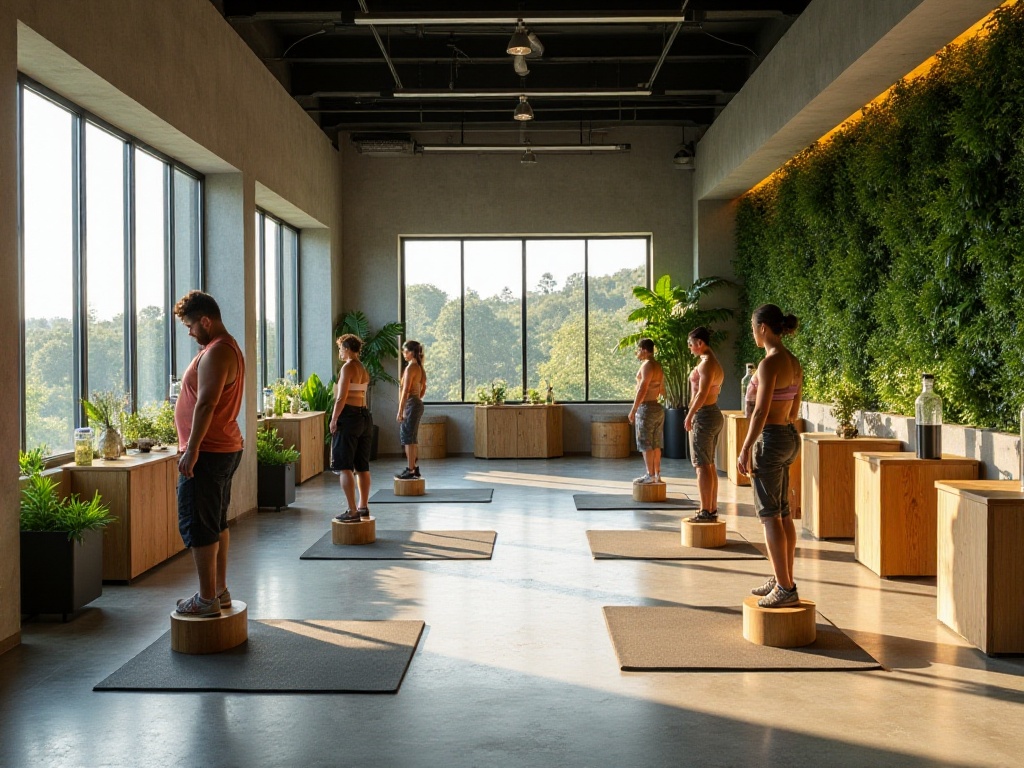
Habit Reshaping
Changing lifestyle is a long process that requires constant adjustment and persistence. During this process, we will inevitably encounter setbacks and difficulties, but we can definitely succeed with the right methods.
First, clarify goals. Don't set too many goals for yourself; it's best to focus on changing one aspect at a time. For example, start with waste sorting first, and consider other aspects after this habit is formed. Goals should be specific and achievable; "sorting waste on time daily" is easier to execute than "do good waste sorting."
Second, create a favorable environment. For example, to develop waste sorting habits, prepare classified garbage bins; to develop the habit of bringing shopping bags, prepare shopping bags at frequently used places like home and office. Environmental changes can help us form new habits more easily.
Recording and summarizing are important. You can use mobile apps or notebooks to record daily progress, which allows you to visually see your changes. When encountering difficulties, also promptly summarize the reasons and find solutions.
Learn to reward yourself. When reaching certain small goals, you can give yourself some small rewards, which can increase motivation to continue. But note that reward methods should be healthy and environmentally friendly, not contradicting our goals.

Community Power
Community support is very important in practicing healthy living. Many people have similar experiences - it's easy to give up alone, but having like-minded partners makes it more motivating.
You can join some environmental protection communities or healthy living groups, where you can find many experience sharing and practical suggestions. Some communities also organize offline activities like eco-markets and health lectures. Participating in these activities not only helps learn knowledge but also make new friends.
You can also mobilize people around you to act together. For example, promoting waste sorting at home, advocating reusable cutlery in the office, organizing environmental protection activities in the community. Seeing your actions influence others gives more sense of achievement and motivation to continue.
Final Words
Healthy living is a systematic project that requires our joint efforts in multiple aspects. This is not something that can be achieved overnight, but requires our continuous persistence and improvement. Everyone's situation is different, and we need to make suitable plans based on our actual circumstances and change gradually.
The important thing is to have patience and confidence, believing that through our own efforts, we can definitely achieve the goal of healthy living. Also remember that healthy living is not about pursuing perfection, but about making life better. In this process, we can not only gain health but also happiness and a sense of achievement.
What do you think is the biggest challenge in achieving healthy living? Welcome to share your thoughts and experiences in the comments section. Let's work together to create a healthier and more environmentally friendly lifestyle.
Next
From Zero to One: A Comprehensive Guide to Building the Perfect Healthy Lifestyle at Home
A comprehensive guide to healthy lifestyle and zero waste living, covering essential health aspects like weight management, balanced nutrition, and exercise routines, along with waste management based on 5R principles and sustainable living practices
Understanding Healthy Living in 10 Minutes: From Zero Waste to Balanced Nutrition, Improve Your Quality of Life by 300%
A comprehensive guide to healthy lifestyle and zero waste living, covering essential aspects of balanced nutrition, exercise routines, weight management, and environmental practices including the 5R principle and recycling for sustainable living
Health Living Guide for Post-90s Workers: 15 Key Habits for Daily Energy
A comprehensive guide to healthy living covering essential aspects of diet, nutrition, exercise, sleep patterns, and mental wellness, offering practical advice for developing sustainable healthy habits and improving overall quality of life
Next
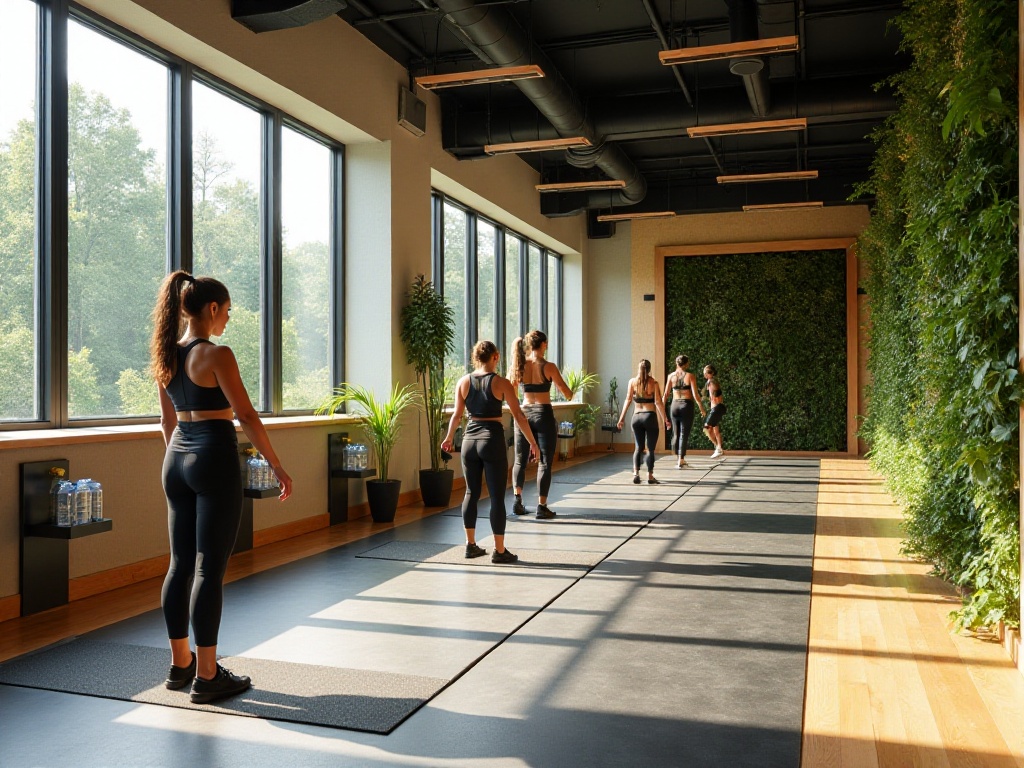
From Zero to One: A Comprehensive Guide to Building the Perfect Healthy Lifestyle at Home
A comprehensive guide to healthy lifestyle and zero waste living, covering essential health aspects like weight management, balanced nutrition, and exercise routines, along with waste management based on 5R principles and sustainable living practices
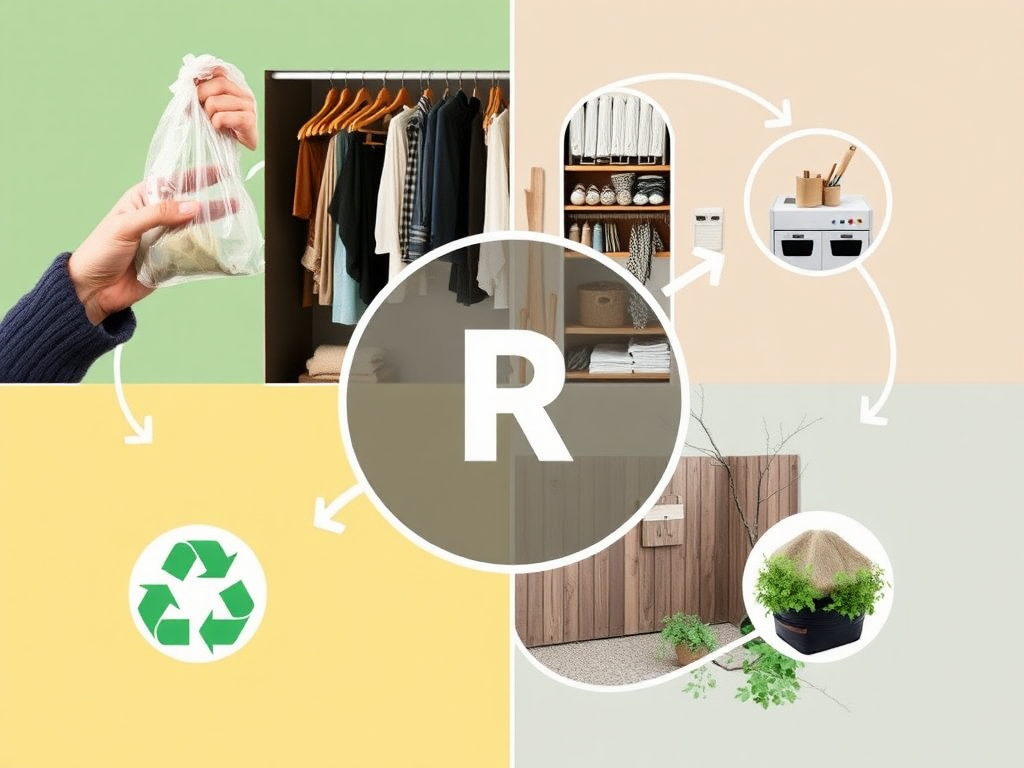
Understanding Healthy Living in 10 Minutes: From Zero Waste to Balanced Nutrition, Improve Your Quality of Life by 300%
A comprehensive guide to healthy lifestyle and zero waste living, covering essential aspects of balanced nutrition, exercise routines, weight management, and environmental practices including the 5R principle and recycling for sustainable living
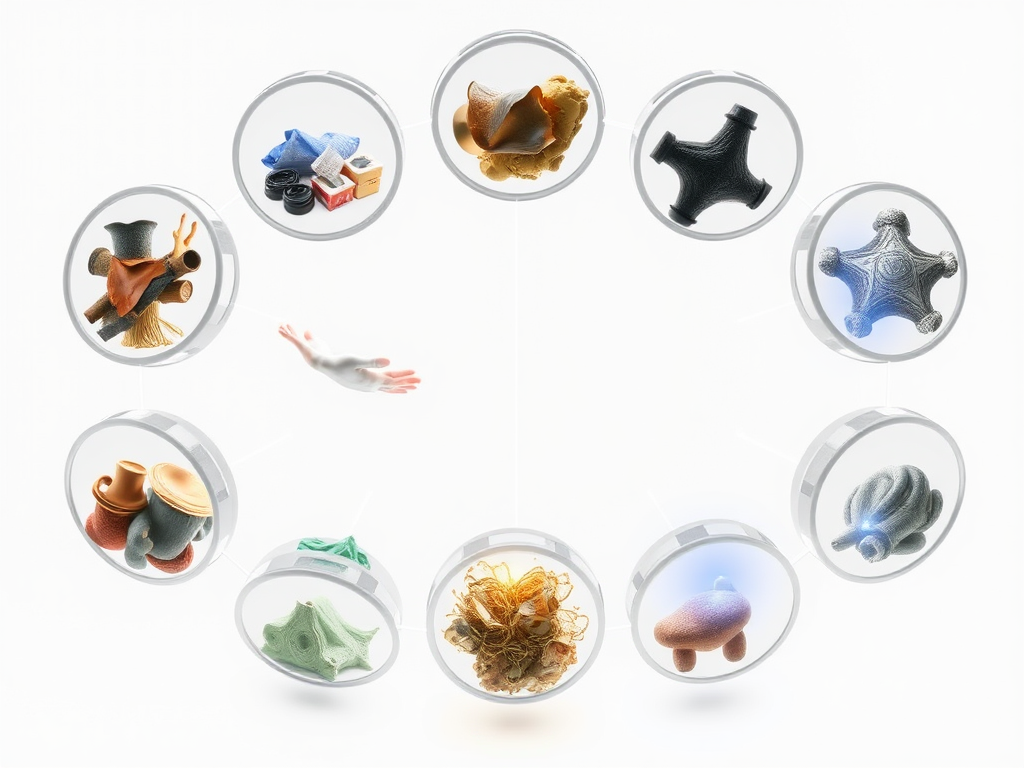
Health Living Guide for Post-90s Workers: 15 Key Habits for Daily Energy
A comprehensive guide to healthy living covering essential aspects of diet, nutrition, exercise, sleep patterns, and mental wellness, offering practical advice for developing sustainable healthy habits and improving overall quality of life



